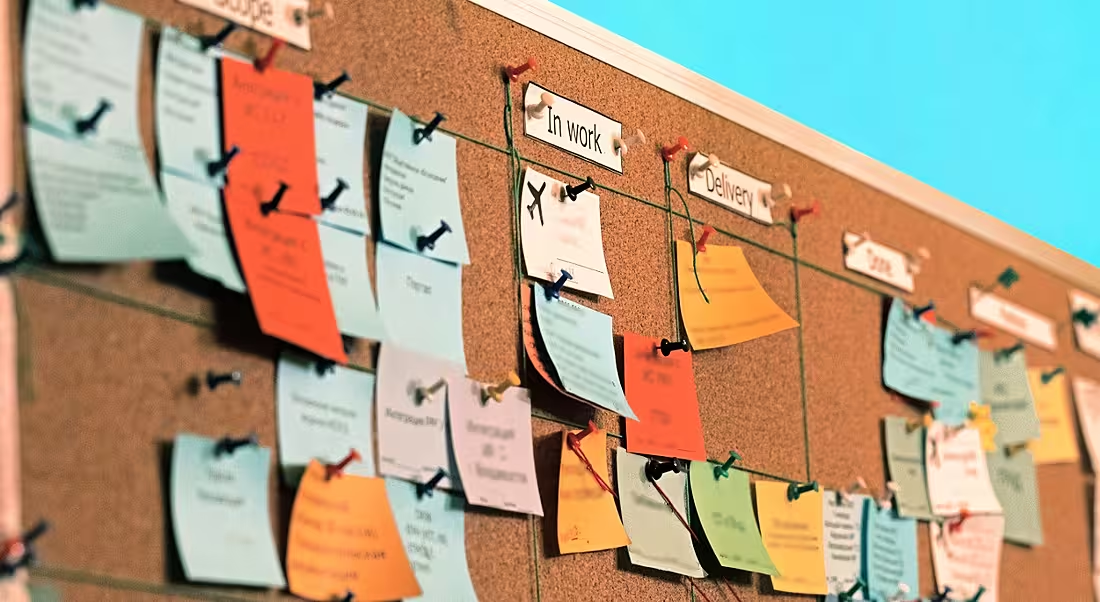Professional scrum master Ryan Ripley shares his advice on leading software development and product delivery teams while working remotely.
As with plenty of other industries, software development and product delivery doesn’t simply stop now that the people in the driving seat are working from home. But for agile and scrum teams, those in leadership positions now face a new suite of challenges to ensure business continues and to keep their team engaged remotely.
To gain some insights, I spoke to professional scrum trainer Ryan Ripley, who is the host of the Agile for Humans podcast and the co-author of Fixing Your Scrum.
With experience as a software developer, manager, director and scrum master across the medical devices, wholesale and financial services industries, he talked about making the most out of working and leading from home.

Ryan Ripley. Image: Scrum.org
What are the challenges facing scrum masters working from home?
Scrum masters working from home will see all of their previous challenges, pitfalls, anti-patterns and bad practices amplified online. These limit an organisation’s ability to take full advantage of the agility scrum should bring: the development team isn’t cross-functional or self-organising, the product owner doesn’t get value for their investment, and stakeholders and customers are left wondering when something – anything – will get delivered.
These issues are already really hard to work through face-to-face. Imagine how much more difficult the scrum master role is when working from home. And while it looks like the challenges are coming from processes, tools or practices, the really deep and difficult issues are around people and relationships.
How do we, as scrum masters, help our teams work together well? How can we work with the organisation – for example with HR, legal, finance and leadership – to remove impediments and help our teams deliver high-quality products? How do I partner with my product owner and support them as they navigate agile product management in a remote world? These are the amplified challenges facing scrum masters today.
What are some things they need to be mindful of avoiding?
It’s tempting to put a lot of processes and practices in place to help people and teams cope with working remotely. Please resist this urge. Working as a team, whether face-to-face or remotely, is a skill. Skills take time to develop.
Check in with your teams and work with them on how to incrementally get better at working as a team in a remote setting. It’s also tempting to pretend that there isn’t a real difference between face-to-face and remote work. This illusion is likely shattered by now. Your teams need new working agreements and policies on how they will work together as they create products.
Finally, avoid the idea that productivity will not decrease for a little while. People are scared and they’re adjusting to a new way of working. It will take time and effort to learn how to make great products with remote teams.
Are there any tools or resources that you’d recommend?
I’ve personally become a very big fan of Zoom and Mural. I believe that we can do some amazing facilitation and coaching using the breakout rooms in Zoom and the canvasses in Mural.
But that’s my preference. Every scrum master needs to figure out, with input from their teams, which tools resonate and help their scrum team continue to collaborate, improve and deliver.
What is your advice for scrum masters finding it hard to get to grips with this new way of working?
Get some help. One of the most important lessons that I’ve learned over the past 20 years is that, as a servant leader, my mindset has to be in a good place in order to help other people. Please take care of yourself first.
Find a mentor, reach out to another agile coach or join an online meetup. Find someone who you can work with to work through the challenges of working in a remote world. If you can’t find anyone, email me. I promise to reply and try to help.
Are there any key attributes or skills you think are crucial for scrum masters at the moment?
Empathy is everything right now. Your teams are working at home with kids running around and even visiting your teams during Zoom calls. Enjoy those moments. Humanity during a time of social distancing goes a long way towards helping people focus.
The scrum values – commitment, openness, focus, courage and respect – are essential right now. What if we committed to our teams to try to bring the best version of ourselves forward each day? If we are open about our fears, concerns and challenges, could that help?
If we focus on the most important things – the people – and make sure we are taking care of one another, does that lead to a team mentality? Do we all have the courage to put up our hand and ask for help when we are stuck and not sure what to do next? What if we amplified our respect for others during this difficult time?
By living these values and making them part of a remote team’s DNA, we create the opportunity for a team to come together, support each other and deliver great products to the world.
Do you have any tips for scrum masters to make sure they are exhibiting empathy and keeping their employees engaged?
Check in with your scrum team frequently. When on a Zoom call, ask that everyone turns on the video camera. Let’s see everyone’s face and try to catch the non-verbal cues that are so critical to reading a room and getting clues about how people are doing.
I also highly recommend that scrum masters ask their teams what is it about working remotely that makes delivery more difficult, and then listen. Let the team share their fears, concerns and impediments. Then commit to working with leadership and management on the most important impediment that the team discovers during this discussion. Your commitment to making their lives better will go a long way with your team.
Finally, encourage everyone – including yourself – to be kind to each other. This is a very difficult time. Encourage patience and kindness as we navigate the complexity of working remotely during a global pandemic. Take care of each other and be safe.




